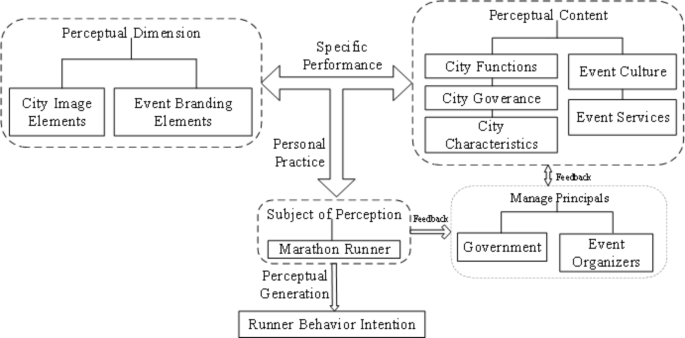The Impact of Urban Context on Brand Perception in Marathon Events
Brand perception in marathon events is significantly influenced by the surrounding urban context, a concept rooted in perception theory from psychology. Participants’ experiences during such events are shaped not only by the marathons themselves but also by the host city’s characteristics. According to Holbrook (1999), experiential interactions with the social and physical environment profoundly affect how consumers perceive value. This dynamic relationship is essential for event organizers aiming to create lasting brand associations.
Understanding City Image and its Influence
The theory of city image identifies various elements—including government functions, economic conditions, and cultural heritage—that contribute to visitors’ overall impressions. For marathon events, the host city’s image plays a crucial role in shaping participant perceptions. Richelieu (2018) describes city image as the cumulative sum of subjective perceptions, vital for understanding engagement within the event environment. As marathons reshape the public’s view of a city, aspects like public safety, transportation, and recreational facilities become vital in enhancing brand image.
City Functions and Their Importance
City functions encompass core aspects such as transportation infrastructure and healthcare systems that significantly impact participant experiences. Studies, including one by Vailaya et al. (1998), reveal that the quality of a city’s services directly influences event satisfaction and brand perception. Marathons utilize urban spaces extensively, making it imperative for cities to effectively manage access and hospitality. This emphasis on city functions presents a critical avenue for enhancing participant experiences and, consequently, perceptions of branded marathon events.
The Role of Effective City Governance
City governance reflects the effectiveness of a city’s administration and its ability to manage events. As argued by Maenning et al. (2009), high-quality governance can enhance the appeal of large events, impacting brand perception positively. Optimal governance ensures operational efficiency and the readiness to tackle unexpected challenges effectively. Collaborations between governmental entities and community businesses further enrich the event experience, emphasizing the need for strong governance that can facilitate the success of branded marathons.
Unique City Characteristics and Their Influence
City characteristics encompass diverse cultural and historical elements that differentiate one city from another. These unique attributes enhance the marathon experience, allowing participants to forge a deeper emotional connection with the host city. Research by Zhang (2016) indicates that distinctive urban elements significantly influence brand perception during events. By incorporating these characteristics, organizers can develop a unique brand identity for the marathon, enriching the overall experience for participants.
The Significance of Event Culture
Event culture comprises the various rituals, values, and celebrations that define the essence of a marathon. These cultural components are crucial in shaping the event’s brand identity and participants’ emotional connections to it. Cultural elements, such as locally inspired themes and ceremonies, can significantly enhance participant loyalty and positive perceptions of the brand, as noted by Huang et al. (2022). By integrating culture into the event branding strategy, organizers can enhance the appeal of their marathons.
The Impact of Event Services on Brand Perception
Lastly, event services—including logistical support and participant care—are essential in shaping brand perceptions. Quality service experiences are critical in determining overall satisfaction levels and the likelihood of repeat participation. Parasuraman (1988) illustrated that service quality can strongly influence consumer perceptions of brand value, emphasizing the importance of exceeding participant expectations in service delivery. By focusing on service excellence, event organizers can improve the overall brand image of their marathons, establishing a competitive edge in the industry.
